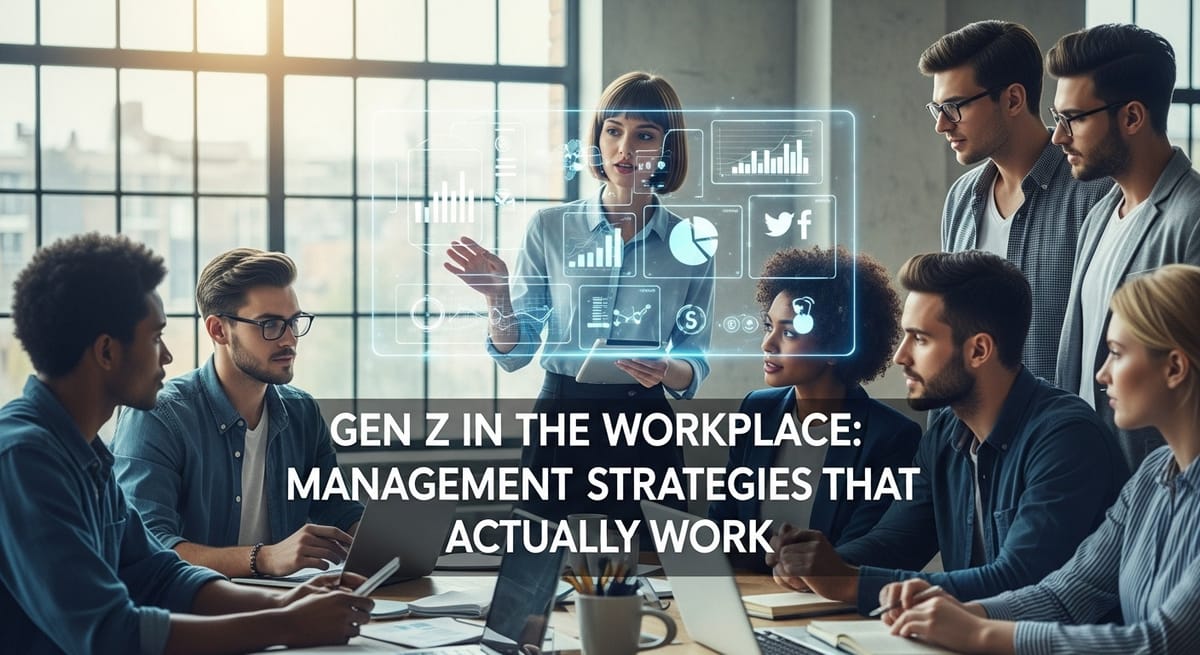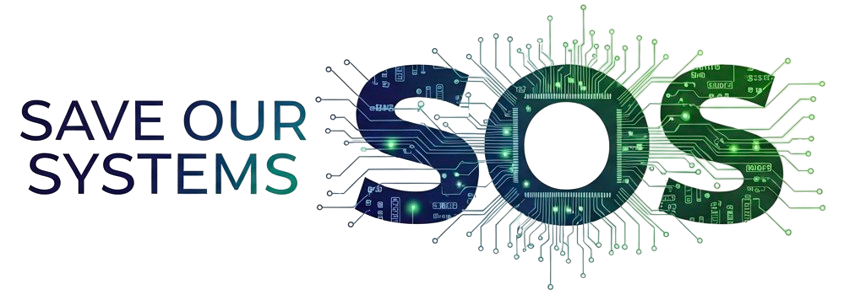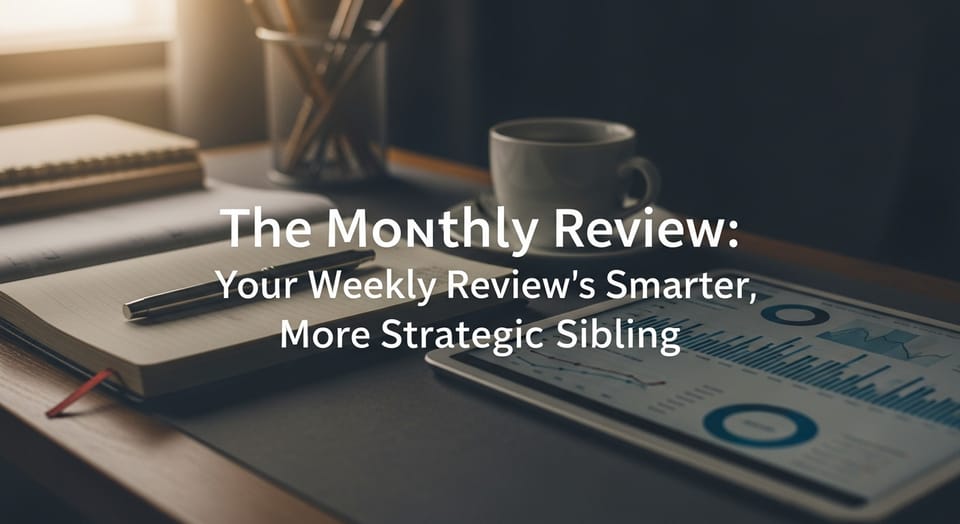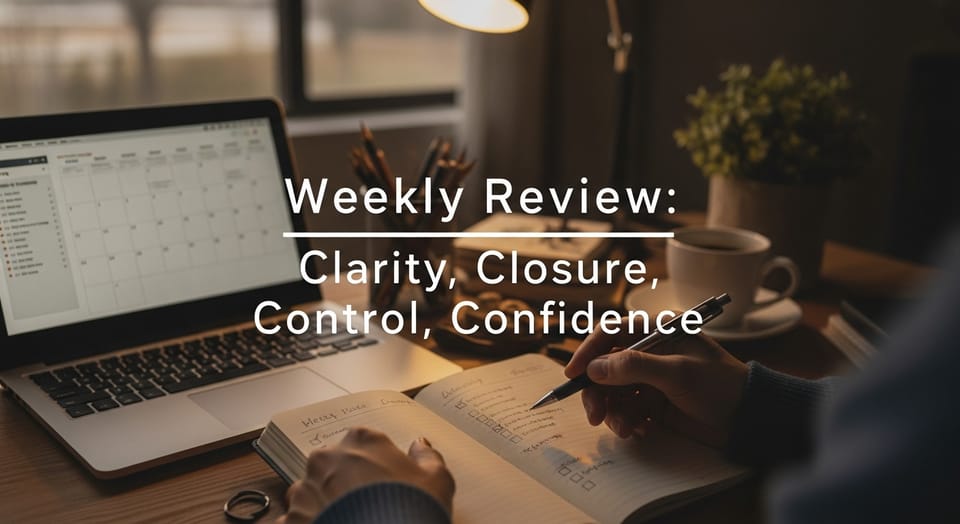Gen Z in the Workplace: Management Strategies That Actually Work

Today's workplace is experiencing a significant transformation as Generation Z (born between 1997-2012) enters the workforce in unprecedented numbers. These digital natives bring unique perspectives, skills, and expectations that challenge traditional management approaches. Understanding how to effectively lead this generation is becoming increasingly crucial for organizational success.
Unlike previous generations, Gen Z has grown up in a world shaped by smartphones, social media, and instant access to information. Research from the Deloitte Global 2022 Survey reveals that this generation demonstrates strong digital fluency combined with pragmatic career outlooks and a desire for purpose-driven work. They value authenticity, transparency, and organizations that align with their social values.
This article explores evidence-based strategies for managing Gen Z employees, focusing on communication approaches, feedback systems, work environment preferences, and career development opportunities that resonate with this diverse generation.
Understanding Gen Z Workplace Characteristics
To effectively manage Gen Z employees, it's essential to recognize their defining workplace characteristics:
- Digital fluency with practical application: While comfortable with technology, Gen Z expects it to serve meaningful purposes rather than being implemented for its own sake.
- Preference for transparency: According to McKinsey research, Gen Z demonstrates a marked preference for authenticity, with 70% actively avoiding brands and employers they perceive as inauthentic.
- Desire for meaningful impact: The Pew Research Center confirms that Gen Z seeks connection between their work and broader social purpose.
- Need for regular feedback: Studies show 75% of Gen Z workers prefer feedback more frequently than quarterly.
- Independent work style: Despite assumptions about collaborative preferences, Gen Z often values autonomy in execution.
- Work-life boundaries: A 2023 Mental Health America survey found Gen Z experiences the highest workplace burnout rates (75%), making clear boundaries essential.
Perhaps most significantly, research confirms that Gen Z is the most racially and ethnically diverse generation in history, with 48% identifying as non-white. This diversity shapes their expectations for inclusive workplaces and culturally aware management practices.
Communication Strategies That Resonate
Despite being digital natives, Gen Z shows surprising communication preferences that contradict common assumptions. Harvard Business Review found approximately 60% of Gen Z employees actually prefer in-person communication for important feedback rather than digital-only channels.
Effective communication approaches include:
- Visual-first information sharing: Research by Pearson Education found 59% of Gen Z prefers visual learning formats over traditional text. Consider using infographics, short videos, and visual aids when conveying complex information.
- Context and purpose: A 2023 Gallup workplace study revealed that 87% of Gen Z employees need to understand the "why" behind tasks and decisions to maintain engagement. Explain the purpose and impact of assignments.
- Brevity with substance: According to a Grammarly/Harris Poll study, 75% of Gen Z workers value concise communication without corporate jargon. Keep messages clear and straightforward.
- Multi-channel consistency: The Adobe Digital Insights study found Gen Z switches between an average of five screens daily, necessitating consistent messaging across platforms.
Organizations should leverage digital tools strategically while still maintaining meaningful in-person interactions. The balance between efficiency and authentic connection is key to engaging Gen Z effectively.
Feedback and Recognition Systems
Traditional annual performance reviews prove largely ineffective with Gen Z employees. The LinkedIn Workplace Learning Report shows 60% of Gen Z employees prefer receiving feedback weekly or more frequently, compared to just 19% of baby boomers.
Research-backed feedback approaches include:
- Regular check-ins: According to a 2023 Glassdoor Economic Research report, companies implementing bi-weekly check-ins saw 33% higher retention rates among Gen Z employees.
- Growth-oriented feedback: Harvard Business Review found that Gen Z responds more positively to feedback focused on skill development rather than performance evaluation.
- Specific recognition: SHRM research indicates Gen Z prefers highly specific feedback over general praise, with 67% stating vague feedback feels insincere.
- Digital recognition tools: Research by O.C. Tanner found that 79% of Gen Z employees value platforms that allow peer-to-peer acknowledgment.
- Two-way feedback channels: Creating opportunities for upward feedback demonstrates respect for Gen Z perspectives and improves organizational processes.
The key is balancing constructive criticism with positive reinforcement, creating a continuous feedback loop that supports development while acknowledging achievements.
Creating Optimal Work Environments
The physical and cultural work environment significantly impacts Gen Z satisfaction and productivity. The 2023 Future Workforce Report by Upwork found that 73% of Gen Z workers consider flexibility a higher priority than salary when evaluating job opportunities.
Essential environmental elements include:
- Flexible arrangements: According to Buffer's State of Remote Work report, 82% of Gen Z workers prefer hybrid models combining in-office and remote work.
- Technology integration: Dell Technologies research revealed 91% of Gen Z employees consider workplace technology a key factor in employer selection.
- Accessible leadership: Gen Z values approachable leadership with reduced hierarchy. This aligns with their preference for direct communication and transparency.
- Purpose alignment: Connecting daily tasks to larger organizational and social impact satisfies Gen Z's desire for meaningful work.
- Environmental consciousness: The Cone Communications CSR Study found 94% of Gen Z believes companies should address environmental issues.
Organizations should create environments balancing structure and autonomy. While Gen Z appreciates flexibility, they also value clear expectations and guidelines that help them succeed.
Career Development Approaches
Gen Z approaches professional development with distinct preferences. According to LinkedIn's Workplace Learning Report, Gen Z employees spend 12% more time on learning platforms than other generations, indicating their commitment to skill development.
Effective development strategies include:
- Microlearning opportunities: Research by Axonify found Gen Z prefers learning content delivered in segments under 10 minutes, with 70% more engagement for shorter formats.
- Diverse skill acquisition: A World Economic Forum study showed Gen Z anticipates having 8-10 jobs throughout their career, emphasizing transferable skills.
- Mentorship programs: SHRM research indicates structured mentorship programs increase Gen Z retention by 38% compared to organizations without formal mentoring.
- Clear advancement paths: Transparent requirements for progression satisfy Gen Z's desire for growth while addressing their career security concerns.
- Innovation opportunities: Providing channels for Gen Z to contribute ideas acknowledges their unique perspectives and fresh thinking.
As one leader noted in our research, "It's very easy to identify high-performing Gen Z employees when you provide the right development opportunities. They thrive when given both structure and room to innovate."
Managing Common Challenges
Several challenges frequently emerge when managing Gen Z employees. A 2023 study by Rainmaker Thinking identified attention management as a significant concern, with Gen Z workers averaging short periods of focused attention before seeking new stimulation.
Effective solutions include:
- Task chunking: Microsoft Work Trend Index shows breaking tasks into 25-30 minute segments increases Gen Z productivity by 28%.
- Balancing independence and collaboration: According to Gallup, Gen Z performs best with clear expectations alongside autonomy in execution.
- Digital boundary policies: Organizations implementing explicit technology policies saw a 47% decrease in burnout among Gen Z employees, according to the American Psychological Association.
- Leveraging outside perspective: As one manager suggested, "Utilize your younger workers to think outside the box. They don't know a world without technology, so their diverse perspective might help certain situations."
The key is viewing these challenges as opportunities for workplace evolution rather than generational deficiencies requiring correction.
Fostering Inclusion and Diversity
Gen Z places unprecedented importance on DEI initiatives. According to a Glassdoor Economic Research report, 76% of Gen Z job seekers consider diversity practices when evaluating potential employers.
Important inclusion approaches include:
- Authentic representation: A Deloitte study found 67% of Gen Z evaluates leadership diversity when considering employers.
- Psychological safety: Google's Project Aristotle research demonstrates teams with high psychological safety showed 41% higher productivity, particularly among younger employees.
- Resource groups: According to Boston Consulting Group, organizations with active employee resource groups saw 24% higher engagement scores from Gen Z employees.
- Inclusive language: Research by Textio found organizations with inclusive communication guidelines attracted 23% more Gen Z applicants.
Gen Z expects organizations to move beyond superficial diversity statements toward measurable actions and representation throughout all levels of the organization.
Conclusion
Effectively managing Gen Z requires understanding their unique characteristics while avoiding stereotypes that overlook individual differences. The research consistently shows that successful strategies include clear communication, personalized recognition, flexible work environments, and meaningful development opportunities.
Organizations that adapt their management approaches to engage Gen Z effectively gain significant competitive advantages in recruitment, retention, and innovation. By embracing the perspectives of this diverse generation, companies not only support their Gen Z employees but often discover improvements that benefit workers of all generations.
The workplace continues to evolve, and organizations willing to learn from Gen Z rather than simply trying to fit them into existing structures will be best positioned for long-term success in our rapidly changing business landscape.
Sources
- Deloitte. (2022). "The Deloitte Global 2022 Gen Z and Millennial Survey."
- McKinsey & Company. (2023). "'True Gen': Generation Z and its implications for companies."
- Pew Research Center. (2024). "Generation Z: Life and Career Expectations."
- Harvard Business Review. (2023). "How to Manage Generation Z in the Workplace."
- LinkedIn Learning. (2024). "2023 Workplace Learning Report."
- Glassdoor Economic Research. (2023). "What Gen Z Workers Want: The Next Generation of Talent."
- Gallup. (2023). "How Gen Z Wants to Work and Live."
- Buffer. (2024). "State of Remote Work."
- Mental Health America. (2023). "Mind the Workplace Report."
- O.C. Tanner. (2023). "Global Culture Report."
- Upwork. (2023). "Future Workforce Report."
- Dell Technologies. (2023). "Gen Z in the Workplace: Research Study."
- Microsoft. (2024). "Work Trend Index: Annual Report."
- Pearson Education. (2023). "Beyond Millennials: The Next Generation of Learners."
- Grammarly/Harris Poll. (2023). "State of Business Communication."




